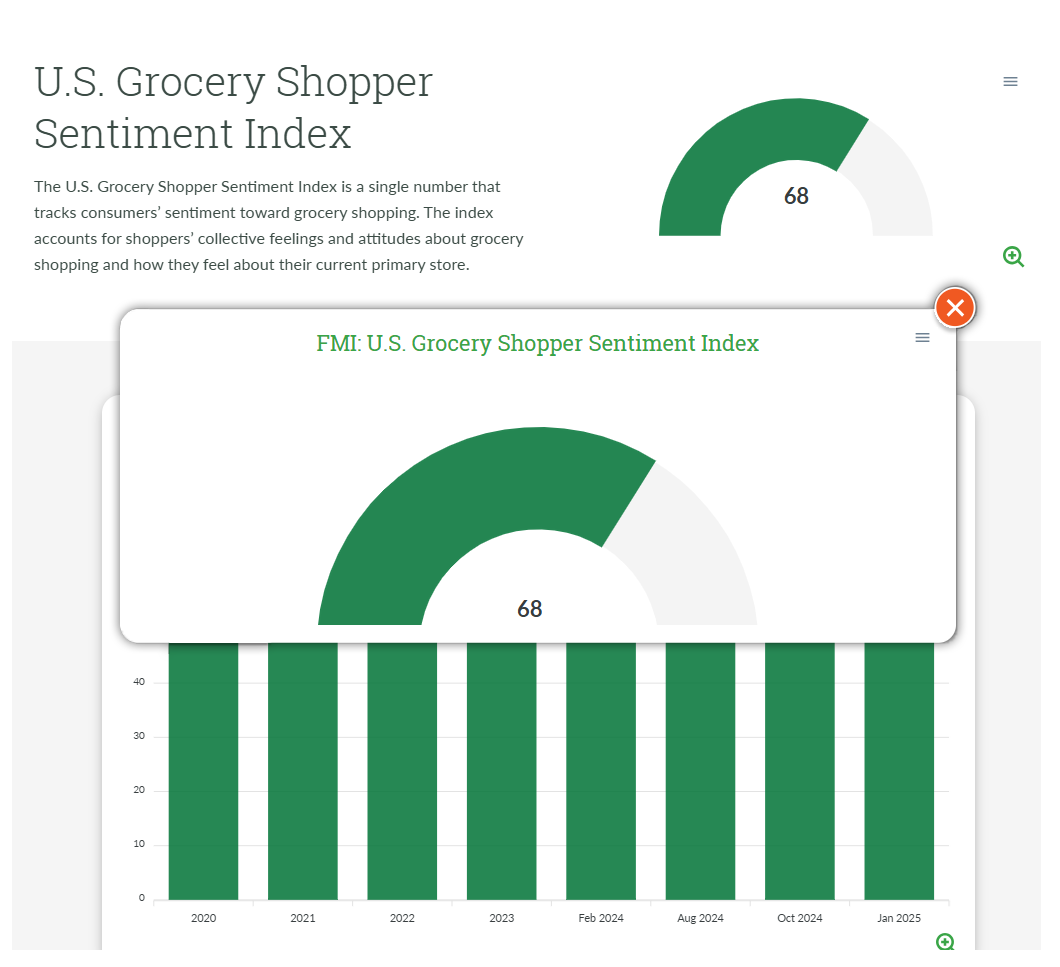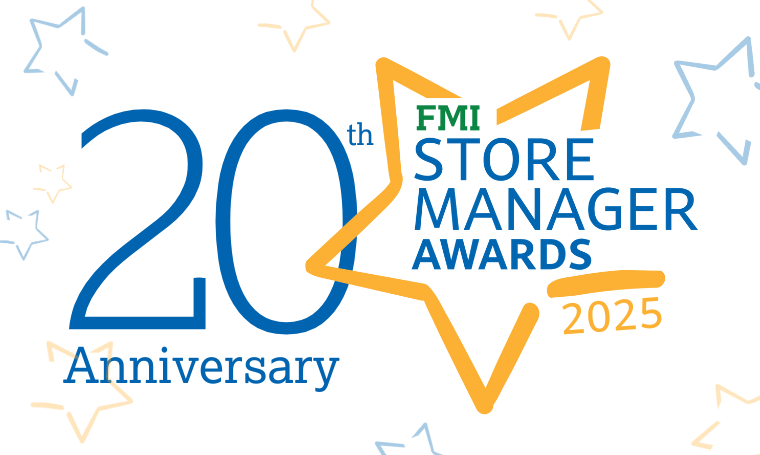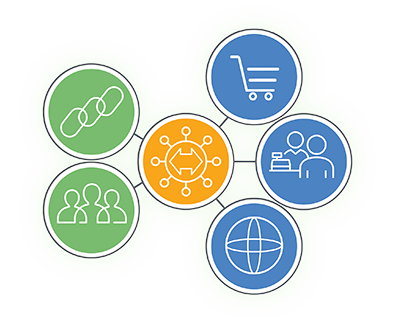About Us

Who We Are
As the food industry association, FMI works with and on behalf of the entire industry to advance a safer, healthier and more efficient consumer food supply chain.
FMI brings together a wide range of members across the value chain — from retailers who sell to consumers, to producers who supply the food, as well as the wide variety of companies providing critical services — to amplify the collective work of the industry.
We provide members, from independent operators to the largest national and international players, a unique forum for actively coming together to engage in dialogue, collaboration and problem-solving as a community. We work together closely to understand the topics that matter most to our members and where FMI can provide the greatest value to them.
Our advocacy yields a powerful voice around public policy and serves as a beacon for elevating the food industry’s stature and relevance. Our extensive research, insights and knowledge resources provide an instrumental educational platform for helping prepare and propel our members and their employees forward.
FMI is a champion for the food industry and the issues that make a difference to our members’ fundamental mission of feeding and enriching society. The reach and impact of our work is extensive, ultimately touching the lives of over 100 million households in the United States and representing an $800 billion industry with nearly 6 million employees.
FMI is not an acronym and is correctly referenced as FMI, The Food Industry Association, upon first reference. FMI is our organization’s formal name.
Our Mission
For food retailers, wholesalers and suppliers of all types and sizes, FMI leverages expertise to:
And support the food retail industry efforts to feed families and enrich lives.
Our Strategic Priorities and Imperative Issues
At FMI, we have defined priorities within strategic pillars to strengthen the focus on what matters most to the industry. Our Strategic Plan outlines long-term goals, strategies, and resource allocation to fulfill member and stakeholder needs. We embrace Imperative Issues to stay ahead, navigate challenges, and make informed decisions.
Imperative Issues
We identified and prioritized issues that have the greatest potential to affect the food industry in both the immediate and long term. After synthesizing findings from external research and internal focus groups, six major categories of imperative issues were identified:
- Labor shortage and workforce challenges
- Supply chain disruption
- Evolving consumer behaviors
- Rising ESG expectations
- Changing marketplace and societal dynamics
- Accelerating technology transformation
Explore Our Latest Work
Our industry experts work tirelessly to address our members’ priority issues and support their long-term business goals. Here are some of our latest initiatives:

U.S. Grocery Shopper Sentiment Index

Celebrating Excellence: 2025 Store Manager Awards


 Industry Topics address your specific area of expertise with resources, reports, events and more.
Industry Topics address your specific area of expertise with resources, reports, events and more.
 Our Research covers consumer behavior and retail operation benchmarks so you can make informed business decisions.
Our Research covers consumer behavior and retail operation benchmarks so you can make informed business decisions.
 Events and Education including online and in-person help you advance your food retail career.
Events and Education including online and in-person help you advance your food retail career.
 Food Safety training, resources and guidance that help you create a company food safety culture.
Food Safety training, resources and guidance that help you create a company food safety culture.
 Government Affairs work — federal and state — on the latest food industry policy, regulatory and legislative issues.
Government Affairs work — federal and state — on the latest food industry policy, regulatory and legislative issues.
 Get Involved. From industry awards to newsletters and committees, these resources help you take advantage of your membership.
Get Involved. From industry awards to newsletters and committees, these resources help you take advantage of your membership.





 Best practices, guidance documents, infographics, signage and more for the food industry on the COVID-19 pandemic.
Best practices, guidance documents, infographics, signage and more for the food industry on the COVID-19 pandemic.
